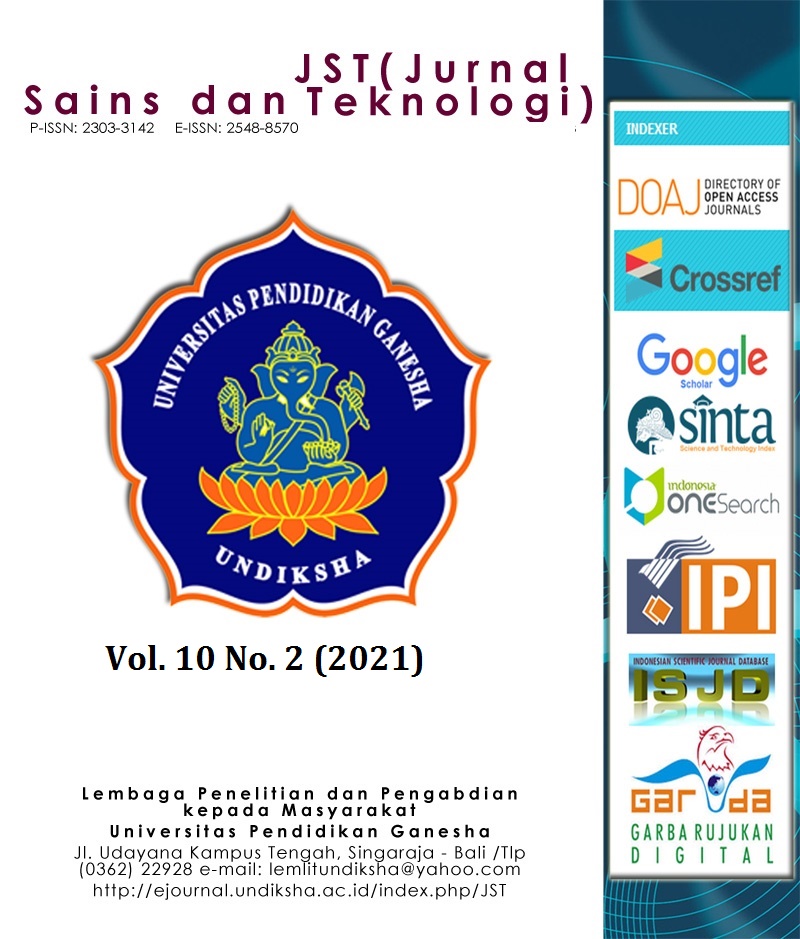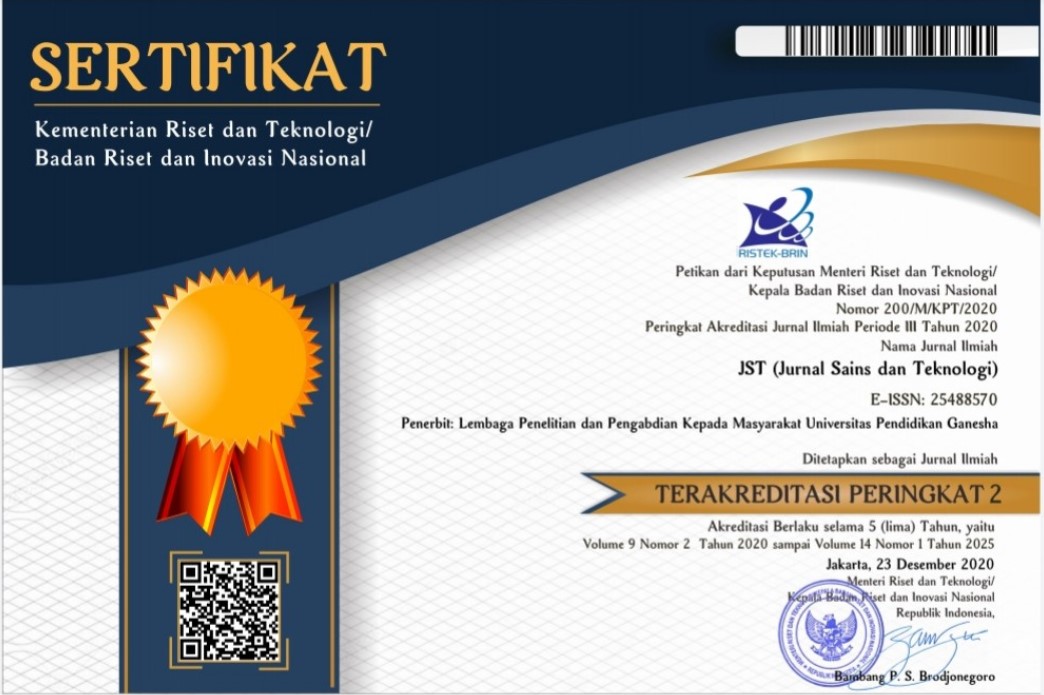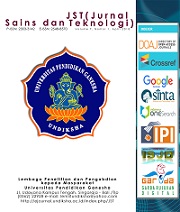METODA FAST FORWARD UNTUK MEMPERCEPAT DINAMIKA KUANTUM ADIABATIK PADA SPIN TUNGGAL
DOI:
https://doi.org/10.23887/jstundiksha.v10i2.39876Abstrak
Abstrak
Penelitian ini membahas metode percepatan dinamika kuantum adiabatik pada sistem spin tunggal yaitu dinamika spin yang bergerak pada keadaan awal up (atas) akan bergerak ke down (bawah) pada keadaan akhir. Metode ini disebut skema fast forward. Metode ini pertama kali di usulkan oleh Masuda dan Nakamura. Dalam metode ini, skema percepatan dibangun dengan menambahkan suku interaksi penggerak ke Hamiltonian awal dan mempercepatnya dengan menggunakan faktor penskalaan waktu yang bernilai besar dan parameter adiabatik yang menuju nol (0) dan bertujuan mewujudkan dinamika kuantum adiabatik pada waktu yang singkat dan dengan penambahan medan magnet penggerak. Hamiltonian penggerak dan medan magnet penggerak ini menjamin spin tunggal dapat bergerak dari keadaan awal ke keadaan akhir dalam waktu yang singkat tanpa mengubah karakteristik awalnya.
Kata kunci: Adiabatik, Dinamika Kuantum, Spin tunggal
Abstract
This study discusses the method of accelerating adiabatic quantum dynamics in a single spin system, namely the dynamics of a spin that moves in the up initial state will move down in the final state. This method is called a fast forward scheme. This method was first proposed by Masuda and Nakamura. In this method, the acceleration scheme is constructed by adding the driving interaction term to the initial Hamiltonian and accelerating it by using a large time scaling factor and adiabatic parameter towards zero (0) and aims to realize adiabatic quantum dynamics in a short time and by adding a driving magnetic field. The driving Hamiltonian and the driving magnetic field ensure that a single spin can move from its initial state to its final state in a short time without changing its initial characteristics.
Keywords : Adiabatic, Quantum Dynamics, Single Spin
Unduhan
Diterbitkan
Cara Mengutip
Terbitan
Bagian
Lisensi
Authors who publish with the Jurnal Sains dan Teknologi (JST) agree to the following terms:
- Authors retain copyright and grant the journal the right of first publication with the work simultaneously licensed under a Creative Commons Attribution License (CC BY-SA 4.0) that allows others to share the work with an acknowledgment of the work's authorship and initial publication in this journal.
- Authors are able to enter into separate, additional contractual arrangements for the non-exclusive distribution of the journal's published version of the work (e.g., post it to an institutional repository or publish it in a book), with an acknowledgment of its initial publication in this journal.
- Authors are permitted and encouraged to post their work online (e.g., in institutional repositories or on their website) prior to and during the submission process, as it can lead to productive exchanges, as well as earlier and greater citation of published work. (See The Effect of Open Access)
















